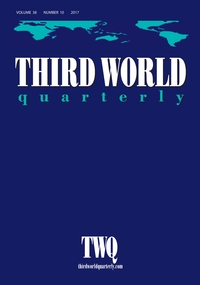 Facing a volley of criticism for publishing an essay that called for a return to colonialism, a journal editor has defended his decision to print the article.
Facing a volley of criticism for publishing an essay that called for a return to colonialism, a journal editor has defended his decision to print the article.
“The Case for Colonialism,” published Sept. 8 in Third World Quarterly (TWQ), was written by Bruce Gilley, a professor of political science at Portland State University. For an idea of what the piece was about, here’s the beginning of the abstract:
For the last 100 years, Western colonialism has had a bad name. It is high time to question this orthodoxy. Western colonialism was, as a general rule, both objectively beneficial and subjectively legitimate in most of the places where it was found, using realistic measures of those concepts.
Since the essay came out, scholars have criticized both the article itself and the journal’s decision to publish it. Several critics have called for retraction. [Update: 15 members of the editorial board have resigned in response.]
One group of critics wrote that they objected to the essay because:
Continue reading Article defending colonialism draws rebuke, journal defends choice to publish




 A journal has withdrawn an essay
A journal has withdrawn an essay 